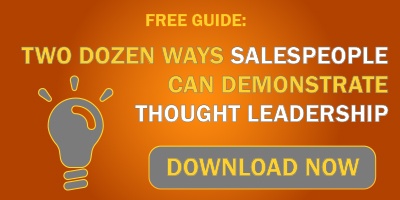 Don’t just inform. Organize.
Don’t just inform. Organize.
When was the last time you arrived at a sales appointment, and the decision maker said, “Glad you’re here! I know our appointment was scheduled for only 15 minutes, but as it turns out, I have an extra hour and a half today!”
Doesn’t happen.
More likely is the meeting where you encounter this rushed greeting: “I know our appointment was for an hour, but something has come up so I only have about ten minutes.”
Happens all the time.
That’s why I want you to think of the daunting task of the Google mission statement: “To organize the world’s information and make it universally accessible and useful.” Of course, Google has more than one singular focus, and serves more than just a user who wants to do a quick search to find a quick answer or fascinating fact. They serve consumers who are shopping, companies who are being shopped, and marketers who are into metrics. I get all that. But focus on that beautiful, simple idea:
“To organize the world’s information… and make it useful.”
To the typical search user, Google’s value is not in how much information they bring you. It is in the way that information is sorted and easy to sift through. Because Google presents all that information rapidly and organized in such a way that we can find exactly what we’re looking for, the information becomes useful.
Now let’s look at that folder full of sales propaganda that a salesperson is typically armed with. There are often notes about the history and heritage of the company, bios of key personnel, the menu of products and services the company offers, technical specifications and descriptions for each of those items, a list of awards and citations the company or key players have won, blah, blah, blah, blah, blah, blah, blah, blah, blah, blah…
Sales proposals? Presentations? Same thing. Lots of information that’s nice to know… standing in the way of what the prospect needs to know.
Take a page from the Google approach: Think about the user experience and everything else will follow. That means sorting through all of the nice to know information in your sales portfolio, and setting it aside (or relegating it to an appendix where it belongs). Then, extract a few key points that could be classified as need to know, and thoughtfully copy-and-paste those critical points into an executive summary that stands apart from your pitch book. Seriously: Think about the user (your client or prospect). Then pull just a few important, salient issues from your material, the ones they absolutely have to understand, the ones that if they don’t understand up front, they may never wade through the rest of your “information.”
- Here’s the first thing I want you to know, and here’s why it matters to your business.
- Here’s the second thing I want you to know, and it matters to you because…
- And the third thing you need to know is, and it’s important to your business because...
We are all familiar with the meeting time that is cut short. In some cases, you should be prepared to cancel the meeting altogether and reschedule it for another time. But even in that situation, you want to leave the prospect with a few compelling bits of information that make them look forward eagerly to that more convenient meeting time. You want to give them just the essence, so they’ll be more protective next time about letting other issues intrude on your meeting time. It is never a bad idea to have an executive summary—in your head or on paper, as the case may be.
And even if your client has all the time in the world, an executive summary demonstrates that you respect their time, that you’ve organized your thoughts, and that you’d like to make it as easy as possible to sell this idea up the decision chain, if that need exists.
Don’t just bring a bunch of information. Create a version of your information that is abbreviated and organized, so as to make it useful.


